Top-Rated Debt Collection Agency in Kenya
Your trusted debt collection agency in Kenya promises swift, reliable recovery with zero upfront costs. Grasp Kenyan collection practices better with our thorough guide.






The ultimate guide about debt collection in Kenya
Why you can trust this guide
At Debitura, we uphold the highest standards of impartiality and precision to bring you comprehensive guides on international debt collection. Our editorial team boasts over a decade of specialized experience in this domain.
Questions or feedback? Email us at contact@debitura.com — we update this guide based on your input.
Debitura By the Numbers:
- 10+ years focused on international debt collection
- 100+ local attorneys in our partner network
- $100M+ recovered for clients in the last 18 months
- 4.9/5 average rating from 621 reviews
Expert-led, locally validated
Written by Robin Tam (16 years in global B2B debt recovery). Every page is reviewed by top local attorneys to ensure legal accuracy and practical steps you can use.
Contributing local experts:
Last updated:
Untangling the intricacies of Kenyan debt collection, whether local or international, can be an uphill task. Debitura simplifies it for you, blending local acumen with expansive global experience. This comprehensive guide equips you to adeptly address any debt collection hurdles in Kenya.
Unraveling Kenya’s Debt Recovery: The Key Players
In examining Kenya's debt recovery landscape, the pivotal roles of key actors such as debt collection agencies, bailiffs, and attorneys become clear. Each contributes significantly to the carefully coordinated process of debt mitigation, strictly abiding by Kenya's legal parameters.
Debt Collection Agencies in Kenya's Debt Recovery Process
Debt collection agencies in Kenya play a pivotal role in the debt recovery landscape, especially in scenarios where diplomatic negotiation and communication are preferred over legal confrontations. These specialized entities engage early in the recovery process, employing a series of non-judicial tactics such as demand letters, phone conversations, and digital correspondence to prompt voluntary repayment from debtors. Governed by Kenya's legal framework, including the Debt (Summary Recovery) Act and consumer protection laws, these agencies operate within a regulated environment ensuring ethical conduct and respect towards debtor rights. While agencies can directly engage with secured creditors, unsecured creditors often require judicial backing to enlist their services. Despite their proactive approach in facilitating debt settlements, the capabilities of debt collection agencies are bounded by non-judicial limits, necessitating the intervention of legal mechanisms for resolution in non-compliant cases.
Role of Lawyers in Debt Recovery in Kenya
In Kenya, the involvement of lawyers becomes crucial when debt recovery escalates from amicable resolutions to legal enforcement. These legal professionals are instrumental in navigating the intricacies of Kenya’s juridical system, particularly for unsecured debts that necessitate court intervention. Lawyers are typically enlisted when initial collection efforts fail, and a formal legal process is essential to recover outstanding debts. Their responsibilities encompass drafting and submitting legal documents, guiding creditors through the court’s demands, and representing them throughout the judicial proceedings. From the issuance of a formal written demand to the debtor, filing a debt recovery suit, to enforcing a court's judgment by attaching and selling the debtor's assets, lawyers ensure that each step aligns with Kenya’s legal standards. By leveraging their comprehensive understanding of the Debt (Summary Recovery) Act and related legislation, lawyers safeguard creditors’ interests, ensuring a proficient and legally compliant debt recovery process.
The Role of Bailiffs in Kenya's Debt Recovery
In Kenya, bailiffs serve as pivotal agents in the intricate landscape of debt recovery, embodying the authoritative bridge between court judgments and their practical enforcement. Acting under the sanction of the judicial system, bailiffs are endowed with the responsibility of ensuring that creditor rights are materially recognized, particularly when debtors default on court-mandated obligations. Their tasks span a wide array of enforcement actions, including but not limited to, the seizure of assets, evictions, and the delivery of legal summonses. Before a creditor can engage a bailiff, a legally binding court order must be obtained, underlining the role of the courts as the foundational arbitrators of debt recovery actions.
The procedural journey to involving a bailiff begins with an unfulfilled formal demand to the debtor, which, upon continued non-compliance, escalates to a debt recovery suit filed within the appropriate court jurisdiction. Once the court adjudicates in favor of the creditor, the path clears for the intervention of bailiffs, who implement the court's decision through the physical recovery of assets. This nuanced interplay between the court's decree and bailiff action ensures a harmonized approach to debt enforcement, protecting the interests of both creditors and debtors within the framework of Kenyan law.
Navigating Debt Collection Laws in Kenya
Understanding Kenya's intricate debt recovery laws is critical to successful collections. Adherence to these regulations not only empowers effective debt recovery but also promotes fair procedures, vital in building trust and maintaining ethical business conduct.
The Regulatory Environment and Civil Court System in Kenya
Kenya's civil court system is instrumental for justice delivery, structured to address various legal matters efficiently and effectively.
- The Magistrates' Courts: These are the entry-level courts handling civil and criminal matters. Their jurisdiction in civil cases often depends on the monetary value of the claim, making them a crucial first step in the debt recovery process.
- The High Court: Above the Magistrates' Courts, the High Court deals with matters of greater complexity and higher value. It also handles appeals from lower courts and tribunals. Cases involving large debts are often resolved here.
- The Court of Appeal: Serving as the intermediary between the High Court and the Supreme Court, the Court of Appeal handles appeals from the High Court, reviewing decisions to ensure justice is served.
In summary, the Kenyan civil court system, with its hierarchical structure from Magistrates' Courts through to the Supreme Court, is designed to address a wide range of legal disputes, ensuring access to justice for all stakeholders involved.
Key Legislation Impacting Debt Collection in Kenya
In Kenya, debt collection is governed by a comprehensive legal framework designed to balance the rights and obligations of creditors and debtors. Here's a look at the key legislation:
- The Debt (Summary Recovery) Act: Facilitates summary recovery of civil debts through magisterial courts, laying down procedures for the initiation and conduct of proceedings.
- The Auctioneer's Act: Regulates the operations of debt collection agencies and auctioneers, detailing the procedures for engaging licensed professionals in the recovery process.
- The Consumer Protection Act: Aims to protect consumers from unfair debt collection practices, ensuring transparency and fairness in creditor-debtor interactions.
These statutes, among others, structure the legal environment for debt collection in Kenya, ensuring an equitable process. Creditors and debt collection agencies need to navigate these laws carefully, respecting consumer rights while efficiently recovering debts. As the legal landscape evolves, staying informed on these regulations remains critical for both local and international creditors operating in Kenya.
Consumer Protection from Unfair Collection Practices in Kenya
In Kenya, robust frameworks are in place to ensure the fair treatment of consumers during the debt collection process. These protections stem from a combination of consumer rights, legal precedents, and regulatory standards aiming to balance the scales between debtors and creditors.
- Consumer Protection Act: This Act safeguards consumers from unfair and misleading debt collection practices, promoting honesty and fairness in collections.
- Privacy and Data Protection Regulations: Regulations under this guideline ensure that consumers' personal information is handled securely, with a focus on protecting consumer data during the debt collection process.
- Auctioneer's Act: This Act provides clear guidelines on the conduct of auctioneers and debt collectors, ensuring that debt recovery actions are conducted ethically without humiliating the debtor.
- Debt (Summary Recovery) Act: It provides a legal framework for the summary recovery of debts, emphasizing due process and the right to a fair trial for debtors.
- Small Claims Court Act, 2016: Offering an accessible and expedited process for debt recovery disputes of up to Kshs 1 million, it ensures swift justice while preserving consumer rights.
In summary, consumer protection in Kenya's debt collection scene is multifaceted, involving legal structures aimed at preventing unwarranted harassment and protecting the privacy and dignity of debtors. By promoting fair and ethical practices, these protections help maintain a just and equitable balance in the debt recovery process.
Amicable Debt Collection in Kenya
Explore the nuances of amicable, or pre-legal, debt collection in Kenya - an efficient, simplified process typically managed by a debt collection agency. This introduction sheds light on the strategies, steps, and crucial factors integral to navigate this approach without court interference.
- Initiating the Amicable Process: Begins with sending a demand letter to the debtor for payment negotiation.
- Legal Framework & Regulations: Governed by the Debt (Summary Recovery) Act and other Kenyan laws on debt collection.
- Statute of Limitations: Debts become unenforceable in Kenya after six years from the date they became due.
- Amicable vs. Judicial Recovery: Amicable recovery is advised before considering judicial proceedings to save time and resources.
- Role of Debt Collection Agencies: Debt collection agencies can assist secured creditors; court order needed for unsecured debts.
- Costs and Fees: Fees involve services by licensed auctioneers and agencies, must be transparently disclosed.
- Consumer Protection: Must adhere to Kenya's Consumer Protection Act to ensure ethical standards during recovery.
- Statutory Interest Rates: Interest rate for late payments set at 1% per month, with the possibility of different agreed rates.
- Timeline and Efficiency: Amicable debt recovery timeline varies by situation but is generally faster than court proceedings.
- Transitioning to Judicial Recovery: Judicial recovery is the next step if amicable efforts fail to recover the debt.
Navigating Amicable Debt Collection in Kenya
Amicable debt collection in Kenya takes a sympathetic approach to resolving debts, emphasizing understanding and negotiation rather than confrontation. This method is about fostering a positive connection between creditor and debtor, aiming for resolutions that consider the debtor's circumstances while enabling the creditor to recoup funds. It's a non-hostile pathway, ideally suited for non-contested claims, steering clear of the legal system's intricacies and expenses.
In Kenya, initiating with an amicable collection process is advised, except when your claim is contested or tangled in legal complications.
Role of Collection Agencies in Facilitating Amicable Debt Recovery in Kenya
Collection agencies play an indispensable role in the amicable recovery process in Kenya, particularly valuable when creditors are unable to dedicate the necessary time or lack the expertise for efficient debt collection. Agencies like Debitura thrive on offering specialized services that range from accurately identifying the debts and debtors to starting conversations through reminders or formal notices. Their neutral perspective, free from emotional investment, often paves the way to more effective debt recovery by ensuring unbiased, professional intervention.
Benefits of Choosing Amicable Debt Settlement
Opting for an amicable debt collection process is mutually advantageous; creditors can economize on legal fees and safeguard their business relationships owing to the respectful nature of this process. Conversely, debtors are accorded more flexible repayment terms, reducing financial burden and possibly nurturing positive sentiments towards the creditor. This approach is rooted in respect and empathy, fostering an atmosphere conducive for settling financial obligations amicably.
When to Consider Transitioning from Amicable to Judicial Collection in Kenya
Although the amicable collection method brings several benefits, there are circumstances that may necessitate the consideration of judicial action. Indicators for shifting towards legal collection include lack of response, recurrent breaches of promise, or intentional avoidance by the debtor. Such a step should be deliberated as a last alternative, considering the substantial expenses and time-consuming nature of legal proceedings, and is usually undertaken after amicable solutions have been fully explored.
Legal Debt Recovery in Kenya
Understanding the legal landscape of debt recovery in Kenya is essential when amicable resolutions fail. Involving court orders and bailiffs, this judicial process often requires expert aid unless the debt falls within the small claims category. Here, we break down Kenya's specific judicial debt recovery process.
- Court Hierarchy: The Kenyan judicial system follows a structured court hierarchy including superior and subordinate courts.
- Legislative Framework: Judicial debt recovery is governed by the Debt (Summary Recovery) Act and the Civil Procedure Act.
- Court Fees and Process: Varying court fees apply, significantly impacting the cost of debt recovery.
- Case Duration: Legal proceedings can extend over long periods due to case complexity and court caseloads.
- Small Claims Court: Ideal for swift resolution of disputes involving claims not exceeding Kshs 1 million.
- Consumer Protection Compliance: Adherence to the Consumer Protection Act and data protection regulations is essential.
- Auctioneers and Agencies: Licensed auctioneers and debt collection agencies play crucial roles in enforcing judgments.
- Commencing Proceedings: A formal approach, beginning with a written demand to the debtor, is necessary.
- Debtor Rights: Debtors have rights including disputing claims and contesting unfair treatment.
- Professional Services: Engaging professional services is often required for successful debt recovery.
Shifting from Amicable to Judicial Debt Collection in Kenya
In Kenya, the journey of debt recovery often commences with amicable methods, such as mediation and negotiation, aiming for a voluntary settlement between creditors and debtors. However, when these friendly approaches fail—often due to disputes or non-compliance from the debtor's end—the pathway leads to judicial debt collection. This method involves the legal system, requiring the creditor to obtain a formal court order for debt enforcement. Transitioning from amicable to judicial debt collection is a significant step that underscores the necessity for professional legal counsel to navigate the complexities of the Kenyan court system.
The Importance of a Formal Judgment in Kenya
A formal judgment or court order is crucial in Kenya for the enforcement of debt collection, serving as a legally binding decision that compels the debtor to fulfill their obligations. To acquire a court order, the creditor must file a debt recovery suit in the appropriate court, presenting evidence of the owed debt and any breach of contract. The importance of this judicial tool lies in its enforceability; once obtained, a court order grants the creditor various mechanisms for debt recovery, including the seizure and sale of the debtor's assets. The pathway to securing a court order involves strategic legal action, highlighting the importance of securing skilled legal representation.
Determining the Appropriate Court in Kenya
The selection of the appropriate court for handling a debt collection case in Kenya hinges on several factors including the amount of the claim, its complexity, and the specific laws applicable to the debt. Claims up to Kshs 1 million (approximately) are typically handled by the Small Claims Court (SCC), known for its expedited process and accessibility for small and medium enterprises (SMEs). Larger claims, including those of significant complexity or involving secured debts, are generally directed towards the Magistrates' Courts or the High Court depending on the pecuniary magnitude and the intricacies involved. This jurisdictional delineation ensures that debt recovery cases are handled efficiently and by the most suitable judicial body, considering the specific details of each case.
Small Claims Court in Kenya
In Kenya, the Small Claims Court (SCC) plays a vital role in the judicial collection process by offering a streamlined and accessible platform for the resolution of disputes involving claims of up to Ksh 1 million. Established under the Small Claims Court Act of 2016, the SCC is designed to be efficient, cost-effective, and responsive, especially catering to the needs of Small and Medium Enterprises (SMEs). Operating with the core objective of enhancing access to justice, the SCC has significantly reduced both the time and financial barriers previously experienced by claimants in the traditional justice system. By May 2023, these courts had impressively managed over 27,000 cases totaling about Ksh 4.6 billion, with an average resolution time of just 53 days. The SCC's jurisdiction covers a variety of disputes including contracts, torts, and personal injuries, although it notably excludes matters related to defamation, land disputes, and tenancy issues. The proceedings are overseen by adjudicators who ensure that the relaxed evidentiary rules and set deadlines facilitate swift justice. Furthermore, the SCC allows for appeals on matters of law to the High Court, ensuring a comprehensive judicial review. The establishment of the SCC is a testament to Kenya's commitment to improving the ease of doing business and ensuring that justice is not only served but is accessible and timely for all.
Ordinary Proceedings in Kenya
Ordinary proceedings in Kenya are tailored for more detailed and complex legal matters that exceed the jurisdiction or the simplified processes of the Small Claims Court. Unlike the Small Claims Court, ordinary proceedings cater to disputes without a capped monetary limit and are typically heard in Magistrates' Courts or High Courts, depending on the case's complexity and value. One significant advantage of ordinary proceedings over the Small Claims Court is their comprehensive nature, allowing for elaborate legal arguments, extensive evidence presentation, and the involvement of expert witnesses. This route is particularly beneficial when handling intricate cases that require deeper legal scrutiny.
Legal representation, although not mandatory, becomes crucial in ordinary proceedings due to the complexity of cases handled. Advocates bring to the table their expertise in legal strategies, evidence handling, and procedural navigation, significantly impacting the case's outcome. The laws and regulations governing these proceedings are primarily found within the Civil Procedure Act, which outlines the procedures for civil lawsuits in Kenya. The Act establishes the framework for initiating claims, serving documents, conducting hearings, and enforcing judgments, ensuring that justice is served efficiently and fairly for all parties involved.
Enforcing Debt Recovery in Kenya
Securing a court order for debt collection in Kenya leads you to the next step: debt enforcement. Supervised by official bailiffs, this essential process allows creditors to seize a debtor's assets to ensure claim fulfillment. This introduction provides key insights into navigating Kenya's debt enforcement channels efficiently.
- Formal Demand Precedence: A formal written demand is essential before initiating legal action for debt recovery in Kenya.
- Court Jurisdiction: Selecting an appropriate jurisdiction is crucial for filing a debt recovery suit effectively.
- Legal Enforcement Methods: Post-judgment methods include asset attachment and sale, emphasizing the importance of a court's decision.
- Debt (Summary Recovery) Act: Summarizes the process for civil debt recovery in Kenya, offering a streamlined approach through magisterial courts.
- Role of Bailiffs: Bailiffs facilitate the seizure and sale of debtor's assets under court orders, distinguishing from debt collection agencies.
- Protection of Consumer Rights: Debtors in Kenya have rights against unfair practices, ensuring transparency and fairness in debt collection.
- Licensing of Debt Collectors: Agencies are mandated to comply with licensing requirements, upholding the integrity of debt collection practices.
- Penalties for Non-Compliance: Defaulting debtors may face imprisonment or property sale, highlighting the consequences of failing to satisfy debts.
- Garnishment and Salary Attachments: Legal provisions allow creditors to garnish wages or attach salaries as part of debt enforcement actions.
The Crucial Role of Enforcement Agents (Bailiffs) in Debt Recovery
In Kenya, enforcement agents, traditionally known as bailiffs, play an instrumental role in the debt recovery process. They are tasked with implementing court orders by identifying, seizing, and liquidating the debtor's assets to recoup the funds owed to creditors. Their responsibilities extend from valuation of assets to orchestrating sales, predominantly via auctions. This process is meticulously governed by the legal system to ensure the fair and legal distribution of sales proceeds to creditors.
Detailed Overview of the Debt Recovery Process in Kenya
The initiation of debt recovery in Kenya necessitates the creditor's filing of a claim backed by an enforceable title that confirms the debtor's obligation. This enforceable title may range from court judgments to formal agreements between parties. Following this, bailiffs are deployed to locate and confiscate assets, which could encompass both real estate and personal vehicles. Certain assets and a portion of the debtor’s income are protected under Kenyan law to ensure the debtor's survival needs are met.
Understanding Costs and the Legal Framework Governing Debt Recovery
Engaging in debt recovery in Kenya comes with associated costs that creditors must anticipate. These include judicial charges, fees for bailiff services, and expenses for legal representation. The complexity and length of the case often dictate these costs. Kenyan law provides a well-defined legal framework detailing the procedures for debt recovery, delineating bailiffs' responsibilities, and safeguarding the rights of all parties involved. This framework ensures a transparent and equitable process.
Preparatory Steps for Successful Debt Enforcement
Prior to enforcement, it is imperative for creditors to confirm the possession of a valid enforceable title. A final payment demand may also be issued to the debtor as a last opportunity to settle the debt voluntarily. This preparatory phase is crucial for laying the groundwork for legal proceedings while also honoring the debtor's right to dispute or contest the enforcement actions.
Streamlining the Enforcement of Judgments and Legal Decrees
The Kenyan court system, encompassing both superior and subordinate courts, plays a pivotal role in adjudicating debt recovery cases. For the enforcement of judgments, creditors may leverage the Debt (Summary Recovery) Act, which empowers magistrates of competent jurisdiction to facilitate the swift recovery of civil debts. This Act delineates the jurisdiction of magistrates, the initiation of proceedings, and the methods of enforcing payment orders, including the potential imprisonment of defaulters or seizing and liquidating property to settle debts.
Consumer Protection and Debtor Rights
Notably, the legal framework in Kenya also emphasizes protecting consumers and debtors from unfair debt collection practices. The Consumer Protection Act and other regulatory guidelines advocate for transparency and fairness in debt recovery, ensuring debtors' rights are not infringed. It is essential for creditors and their agents to adhere to these regulations to avoid legal repercussions and foster an environment of trust and compliance in debt recovery protocols.
In summary, understanding and navigating the complexities of debt enforcement in Kenya requires familiarity with the legal landscape, an appreciation of debtor rights, and the judicious use of enforcement mechanisms. By adhering to the established legal frameworks and engaging professional services when necessary, creditors can enhance the effectiveness and efficiency of their debt recovery efforts.
Insolvency Proceedings in Kenya
In situations where a debtor in Kenya becomes insolvent, unable to fulfil financial obligations, the conventional recourse of asset seizure becomes ineffective. Such circumstances necessitate the exploration of bankruptcy proceedings as a valuable recuperative tool. These structured legal procedures aim to methodically liquidate the debtor's assets, providing the final opportunity to recoup any potential compensation for pending claims.
- Legal Framework: Governed by the Insolvency Act of 2015, offering structured procedures for individual and company insolvency.
- Types of Procedures: Includes Bankruptcy, Individual Voluntary Arrangement, No-Asset Procedure, and Summary Installment Order for individuals.
- Filing Threshold: No-Asset Procedure targeted for debtors with no assets and debts between Kshs. 100,000 and Kshs. 4,000,000.
- Duration for Discharge: Bankrupt individuals may be discharged after three years, subject to compliance with proceedings.
- Creditor Initiation: Creditors can initiate bankruptcy proceedings if the debtor fails to meet debt obligations.
- Priority Rules: Insolvency proceedings prioritize claims based on the hierarchy outlined in the Insolvency Act of 2015.
- Cost Implications: Costs vary based on the chosen insolvency procedure and include legal, trustee, and court fees.
- Expected Recovery: Recovery depends on the debtor's assets and the efficacy of the insolvency process, potentially allowing full or partial debt recovery.
- Court Involvement: Courts play a significant role in overseeing insolvency proceedings, ensuring compliance with legal procedures.
- Secure vs Unsecured Creditors: Secured creditors have priority over assets, whereas unsecured creditors may face limited recovery.
Insolvency Framework in Kenya: A Path to Financial Resolution
Kenya's approach to insolvency is designed to offer a balanced mechanism for addressing circumstances where parties are unable to fulfil their financial commitments. Governed by the Insolvency Act of 2015, Kenya provides a well-defined legal structure that navigates the complexities of insolvency, prioritizing fair treatment and the possibility of rehabilitation for debtors, alongside transparent and equitable recovery avenues for creditors. The Act delineates various procedures such as Bankruptcy, Individual Voluntary Arrangement, No-Asset Procedure, and Summary Installment Order, catering to different scenarios and stakeholder needs. Each process requires precise engagement from both debtors and creditors, emphasizing the significance of informed participation and timely action in insolvency cases.
Strategic Protection and Claim Hierarchy for Creditors
Kenya’s insolvency regime underscores the vital importance of creditor involvement and the safeguarding of their rights. Creditors are urged to comprehend the categorization and prioritization of claims, which is critical for maximizing recovery outcomes. The Insolvency Act specifies the order of priority among creditors, distinguishing between secured and unsecured claims. Engaging actively in the process, for instance through creditor committees or by influencing the drafting of reorganization plans, significantly enhances the prospects of recovery. Moreover, creditors must diligently adhere to procedural requirements, including the submission of claims within the designated periods, to ensure their interests are adequately represented.
Navigating Costs and Understanding Timelines
The journey through insolvency proceedings encompasses various financial and temporal considerations. Stakeholders should anticipate a range of associated costs, including administrative fees, court charges, and expenses for professional legal advice, which are typically settled from the debtor's estate prior to the disbursement of funds to creditors. The timeline of insolvency procedures can vary greatly, influenced by the intricacies of the debtor’s financial landscape, the extent of creditor claims, and the potential for disputations. This variability necessitates a strategic approach from creditors and debtors alike, preparing them for a process that may span extensive durations and impact recovery timelines.
Find a Local Debt Collection Lawyer
Need court-ready representation? Share your case once and receive up to three proposals from vetted litigation attorneys—free, fast, and with no commitment.
- Verified specialists
- Quotes in 24 h, no hidden fees
- Fair, pre-negotiated rates
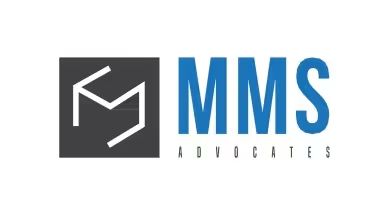
Mwamuye Mzungu Solomon Advocates LLP is a premier law firm in Nairobi offering effective Debt Collection services in Kenya, renowned as the Best Corporate Law Firm and Most Reliable Legal Advisory Firm, with memberships in the Law Society of Kenya and the International Bar Association.
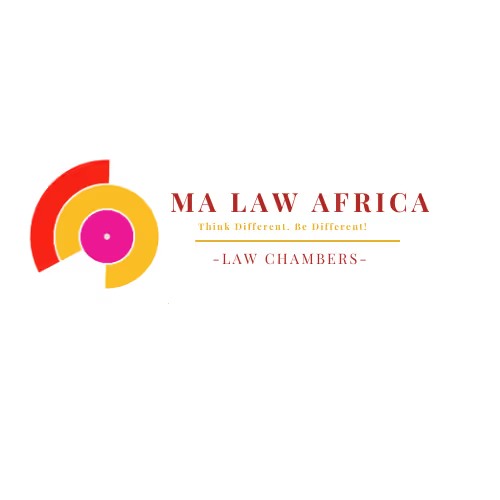
MA Law Africa is a premier law firm in Nairobi offering effective Debt Collection services in Kenya, positioning itself as the go-to partner for debt recovery with a foundation in 2020 and recognized for its awards and memberships.
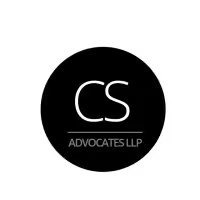
CS Advocates LLP is a premier law firm in Nairobi offering effective Debt Collection services in Kenya, positioning itself as the go-to partner for debt recovery with a foundation in 2021, transparent pricing, and memberships in the Law Society of Kenya and the East Africa Law Society.
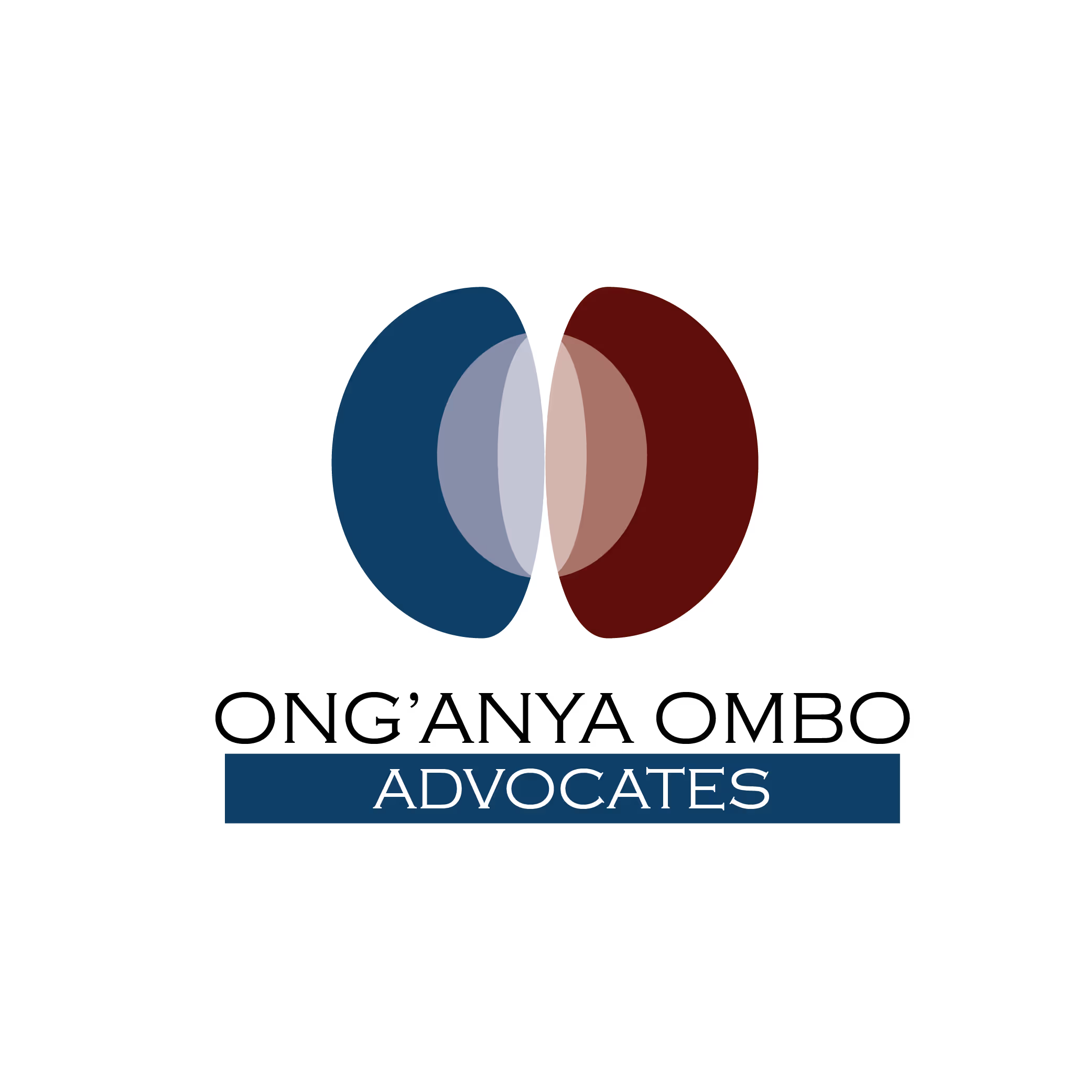
Ong'anya Ombo Advocates LLP is a premier law firm in Nairobi offering effective Debt Collection services in Kenya, recognized by Leaders League and the African Legal Awards, and a member of ALFA International, serving clients across 13 countries since 2018.

Munyao-Kayugira & Co., Advocates is a premier law firm in Nairobi offering effective Debt Collection services in Kenya, established in 2013, recognized among the Top 50 Law Firms by The Lawyer, and a member of the Law Society of Kenya.

Munyao-Kayugira & Co., Advocates is a premier law firm in Nairobi offering effective Debt Collection services in Kenya, established in 2013 and recognized as the Best Labour & Employment Law Firm 2024, with membership in the Law Society of Kenya.
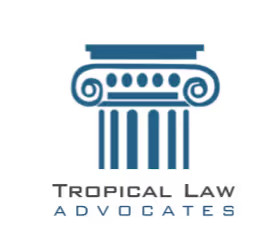
Tropical Law Advocates is a premier law firm in Kampala offering effective Debt Collection services in Uganda, recognized for a high success rate since 2007, serving Uganda and Kenya, and a proud member of the Uganda Law Society and East Africa Law Society.
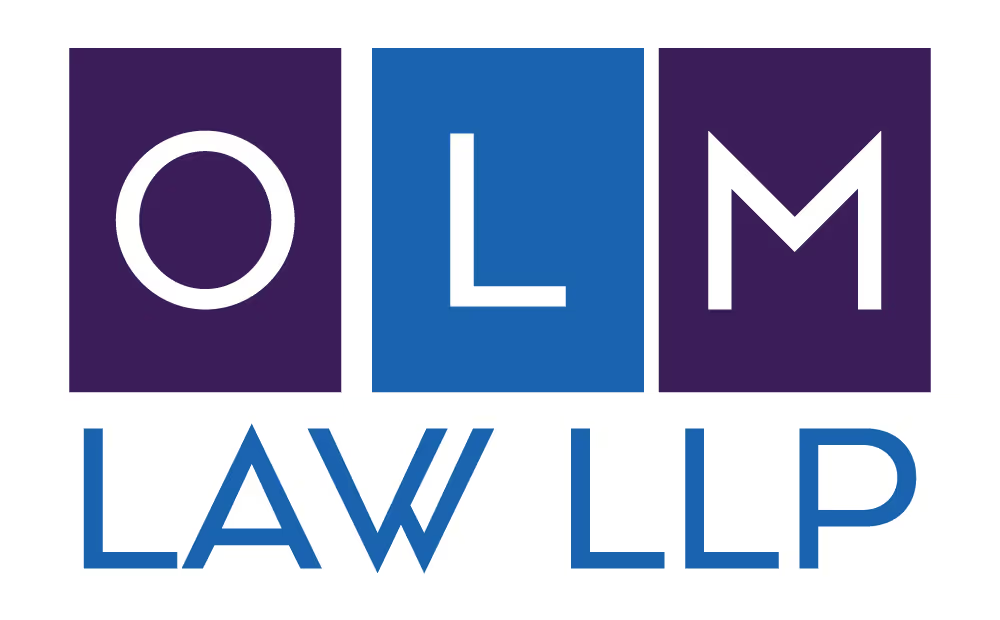
OLM Law Advocates LLP is a premier law firm in Nairobi offering effective Debt Collection services in Kenya, recognized since 2021 with accolades from The Lawyers Global and memberships in IR Global and Global Referral Network, ensuring reliable and award-winning legal solutions.
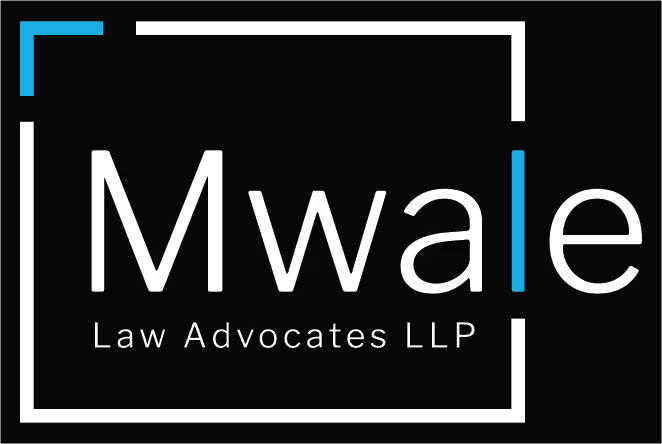
Mwale Law Advocates LLP is a premier law firm in Nairobi offering effective Debt Collection services in Kenya, positioning itself as the go-to partner for debt recovery since 2013, with memberships in the Law Society of Kenya and the United Nations Global Compact.
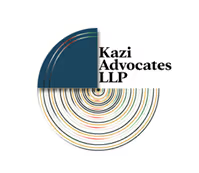
KAZI Advocates LLP is a premier law firm in Nairobi offering effective Debt Collection services in Kenya, renowned for its professionalism since 2016, with membership in the Law Society of Kenya and East Africa Law Society, serving both local and international clients.
%20(1).avif)
Bond Advocates LLP is a premier law firm in Nairobi offering effective Debt Collection services in Kenya, recognized as the Most Trusted Litigation & Commercial Law Firm in East Africa, founded in 2022, and a proud member of HG Legal.
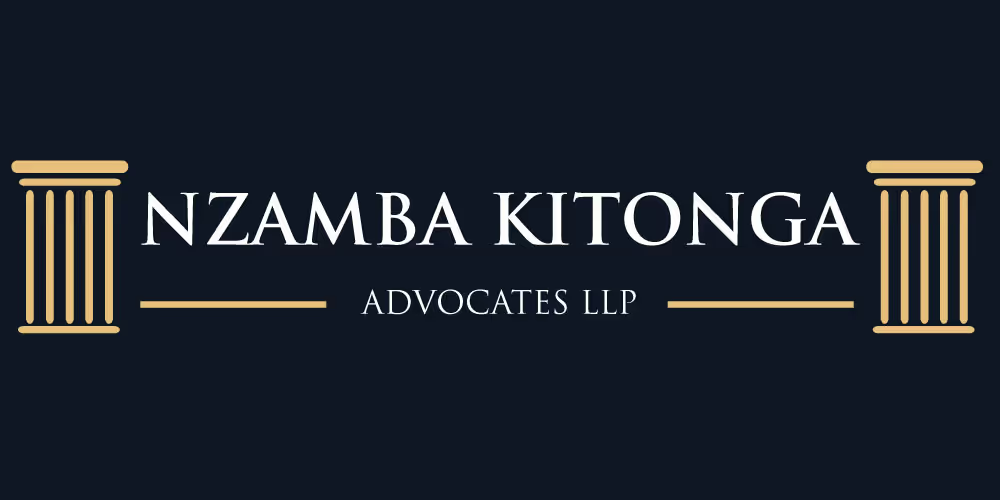
Nzamba Kitonga Advocates LLP is a premier law firm in Nairobi offering effective Debt Collection services in Kenya, established in 1980 and renowned for its comprehensive legal expertise, esteemed accolades, and distinguished membership in professional legal bodies.

Gilchery Limited is a premier debt recovery agency in Nairobi offering effective Debt Collection services in Kenya, established in 2016 and operating on a "No Collection – No Fees" model, with membership in the Association of Debt Recovery Agents (ADRA Kenya).

Wacu Mureithi & Co. Advocates is a premier law firm in Nairobi offering effective Debt Collection services in Kenya, positioning the firm as the go-to partner for debt recovery since 2024, recognized for innovation, integrity, and inclusiveness.





.svg)

.webp)
.png)

.png)
.svg)












.svg)

